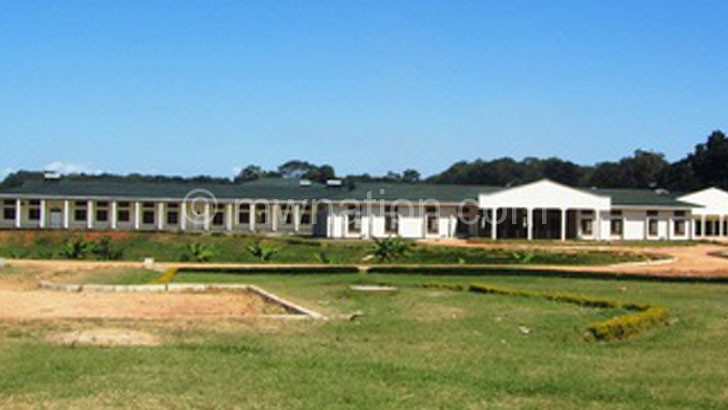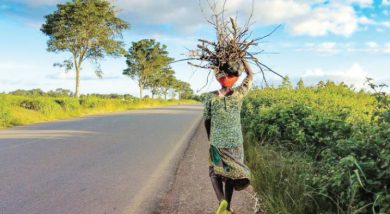Perils of secluded community
Makumbo, a remote area in Nkhata Bay, is a mountainous neighbourhood secluded by sharp hills and valleys on the margins of Viphya Plantations, commonly known as Chikangawa Forest.
It is not accessible by road. The only way to get there from Nkhata Bay Boma is through Mzimba. However, despite its unpopularity, people in Nkhotakota, Nkhata Bay and Mzimba districts rely on the community for agricultural foodstuffs.
They are not only neglected by poor roads but also health services, particularly family planning services.
Patricia Phiri, 43, has seven children and feels they are enough. But without access to contraceptives, she fears she might have more.

“There is no health facility in our area to access medical attention, including issues of family planning. Those available are in hard to reach areas,” she says.
Makumbo depends on Luwawa Health Centre in Mzimba situated about 15 kilometres (km) away. Malawi’s health policy recommends that patients should not walk more than eight km to access health services.
On paper, the community is supposed to be served by Liuzi Health Centre at Tukombo in Nkhata Bay, but it about 50 km away and the road meanders through hills. Phiri says she cannot afford to walk to the facility.
“At first, I was ignorant of the family planning methods until I had the fifth child. Then a local peer educator told me about a wide range of the methods. I tried one for three months, but when it expired, I couldn’t access it anymore due to long distances to the clinic and ended up having two more children,” she says.
Phiri is just one of several other married women nationwide, who wants to practice family planning to stop next birth, but have no access to contraceptives.
According to the 2016 Malawi Demographic and Health Survey (DHS), at least 19 percent of married women in the country have an unmet need for family planning services, while 59 percent of married women are using a contraceptive method.
Despite long distances for the services, Witness Wilima, 43, from Kawaya Village in the area, says cultural beliefs and myths are other barriers that frustrate access to family planning methods.
Nkhata Bay district health office (DHO) spokesperson Christopher Singini says health personnel conduct outreach programmes once every month in rural areas.
“We prioritise hard-to-reach areas such as Makumbo because we understand the challenges that people go through,” he says.
Singini says the office has also engaged a volunteer to offer family planning services and information to the community.
However, Makumbo area development committee (ADC) secretary Antonio Chirwa says the health personal randomly visits them and sometimes see them once in five months.
“It’s worse during rainy season. We are suffering a lot and sometimes lose lives. For example, newly-born babies end up staying five months or more without being vaccinated,” says Chirwa.
The volunteer, Mcheketa Manda, says his efforts are frustrated due to lack of tools and medication to assist the rural masses.
According to the Malawi National Community Health Strategy (NCHS) 2017-2022, the resource constraints and inconsistencies in quality health services are not limited to Makumbo alone.
The strategy acknowledges that this is a national problem because most communities experience frequent medical stock outs and lack of sufficient infrastructure such as health centres.
For instance, only 76 percent of the population lives within an eight km radius from a health facility. The remainder population walks more than 10 km to access health service.
Not surprising life expectancy remains low at 61 percent and maternal mortality rate is high at 439 per 100 000 live births-one of the highest rates globally.
But experts agree that building a strong community health system can help Malawi achieve its commitment to Sustainable Development Goals (SDGs), in particular, goal number Three on universal health coverage.
Former Minister of Health Peter Kumpalume, in the foreword of the NCHS, said through the strategy, government wants to ensure quality, integrated community health services which are affordable, culturally acceptable, scientifically appropriate and accessible to every household through community participation.
“This strategy focuses on multiple areas such as sufficient and equitable distribution of well-trained community health workforce, sufficient supplies, transport and infrastructure.
“This will contribute effectively to the attainment of national and international goals in particular goal number Three,” he wrote.
Malawi Health Equity Network (Mhen) executive director George Jobe wants to see action and not just strategies.
“Commitment does not mean anything. Malawians want accessible quality health services,” he says.
At this year’s World Population Day commemoration event United Nations Population Fund (UNFPA) asked governments honour international commitments on health.





